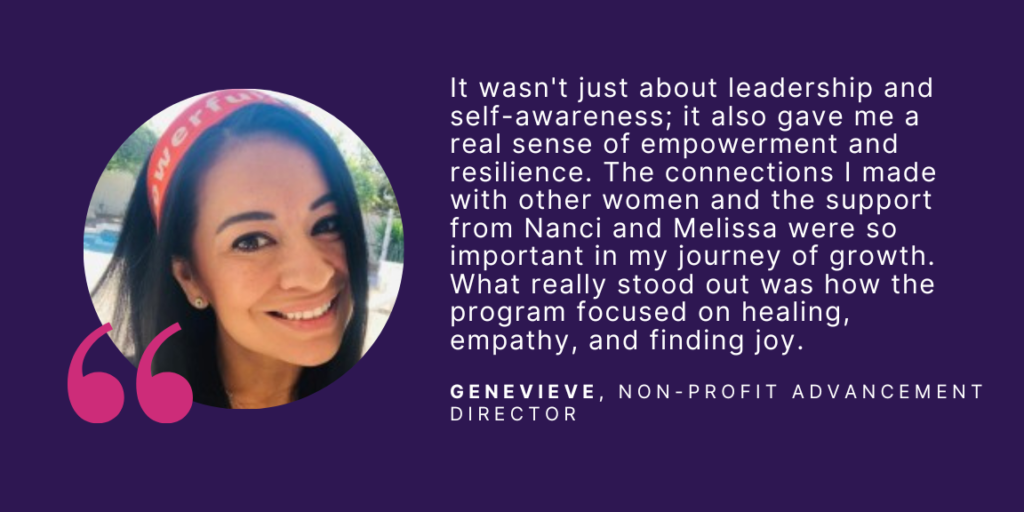Recently someone said to me, “I’m not sure if the Transforming Women’s Leadership Program is for me. I’m not in a leadership position in an organization.”
At LJIST, we don’t define leadership based on title. Our working definition of a leader is:
“Someone who decide to act in a way that makes things go well by thinking about the group as a whole as well as the individual group members—including themselves as the leader.”
Anyone can make this decision. We don’t need to wait for a role or recognition to be a leader. In fact, leading is our natural state. It’s how you came into the world!
In short: everyone is born a leader!
If you’re struggling to see yourself as a leader, or to find joy in taking leadership, then the Transforming Women’s Leadership Program might be for you!

Many of us have been conditioned to think of leadership in terms of certain characteristics – often associated with dominance, assertiveness, and visibility. These are what I call “patterned leadership” qualities.
These patterns are deeply rooted in images, narratives, and ways of thinking that view White men with means as “natural” leaders. We mistake “strength” with violence in its many forms (bullying, humiliation, physical dominance, sexual predatory behavior, bravado) and numbness (lack of empathy, loss of vulnerability, no show of emotions).
We seek leaders with these patterns, often unconsciously, as evidence that they are “good” (and therefore, powerful) leaders. Not surprisingly, these patterns have become the societal marker for success. Leaders who exhibit these behaviors—particularly men—are rewarded with higher compensation, greater access to power and resources, and increased recognition.
But here’s the catch: research consistently shows that when women leaders adopt the same patterns that male leaders are compensated for, women leaders are often punished. As one study puts it, “women are often penalized when they behave in ways that violate gender stereotypes.”
Given the overwhelming evidence of the benefits of women’s leadership in our organizations, communities, and government (see our last blog), and the clear costs of patterned leadership both for women who adopt these behaviors and our society as a whole, we need to rewrite the leadership narrative.
At LJIST, we believe now more than ever our world needs transformative, healing-engaged leadership.
Healing-Engaged Leadership is a practice rooted in care, empathy, and genuine connection. This approach isn’t about removing care from our leadership; it’s about embracing care as a key leadership strength.
We don’t subscribe that only women can thrive as Healing-Engaged Leaders. This approach to leadership is a human at its core. All genders care by virtue of being human. Some genders, though, have been more disconnected from showing and accessing caring, emotional healing, and vulnerability—key aspects of Healing-Engaged Leadership.
This is a cost of sexism to the non-target group. And a key reason why we are committed to ending sexism.
One goal of our Transforming Women’s Leadership Program is to help you navigate this complex landscape. You’ll not only experience the profound impact of Healing-Engaged Leadership tools but also how to avoid falling into traps of caretaking, accommodation, or imitating patterned leadership. As you reclaim your authentic self, you will embody effective and joyful leadership!
Remember, leadership isn’t about a title or position. It’s about how you show up in the world, how you think about those around you—and yourself!, and how you work towards positive change.
In our Transforming Women’s Leadership Program, we’ll explore these ideas in depth, giving you concrete practices and practical support to unlock your authentic leadership!
If you’ve ever doubted yourself as a leader or struggled with societal expectations of leadership, I encourage you to join us.
Together, we can reshape what leadership looks like and create a more inclusive, caring, and effective model for a just future.
